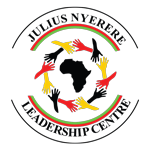By Carol Kasujja Adii
Over 60 finalists and Graduating former student leaders from different Universities in Uganda, have been called upon to be active champions of peace in order to mitigate conflicts.
During the training conducted by Julius Nyerere Leadership Centre (JNLC) in partnership with Konrad Adenauer Stiftung (KAS), at Makerere University, experts on peace and security noted that they are engaging the youth in peace training because they are the current and future architects of unity and peace in Africa.
Speaking at the opening ceremony today (Tuesday 3rd December,2024), Dr Nansozi Muwanga, the Executive Director of Julius Nyerere Leadership Centre, noted that the most important aspects of transformative leadership in particular, cannot be achieved, unless young people are equipped with the necessary skill sets as leaders that enable them forge solid partnerships to lead.
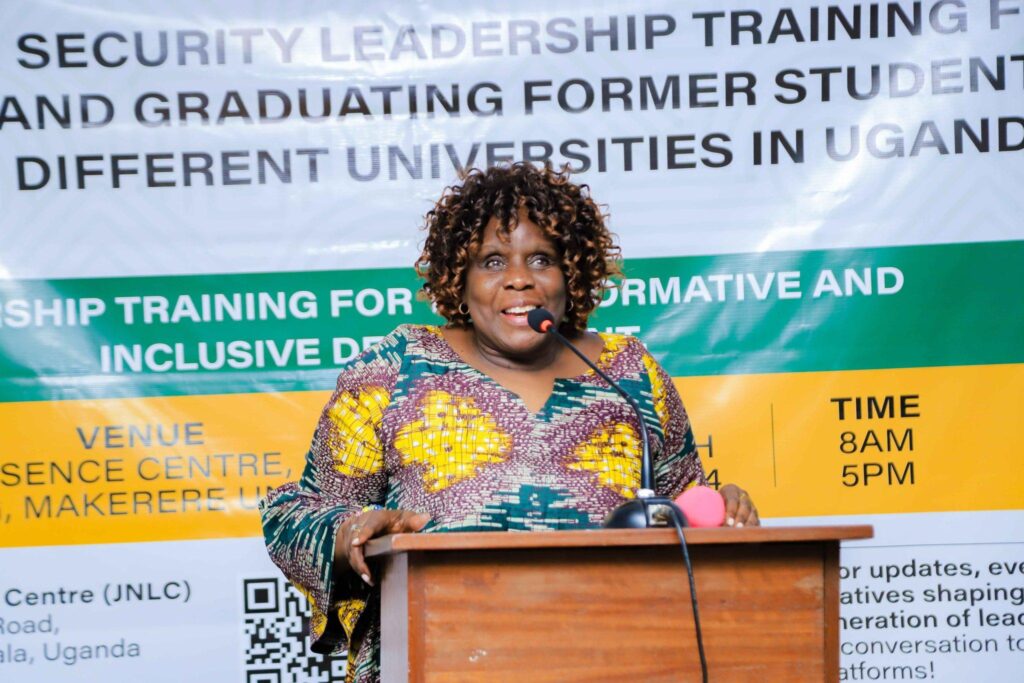
Dr. Nansozi Muwanga, the Executive Director JNLC addresses participants.
Dr Muwanga explained that (JNLC) is committed to continue to honour the legacy of Mwalimu Julius Nyerere by espousing his ideas and leadership ideals to realise the African liberation agenda, especially through empowering the youth.
Therefore, JNLC’s trainings go beyond traditional leadership ideologies. According to Dr. Muwanga, at their core is the emphasis on the importance of servant leadership, self-awareness, emotional intelligence, mental health and well-being, which are crucial elements for cultivating creative and resilient leaders who can navigate the challenges ahead with confidence and clarity.
Addressing students, Angella Kasekende, the Project Manager at the Konrad Adenauer Stiftung’s Regional Programme Security Dialogue for East Africa, reminded students that if they want to be good leaders, they need to be disciplined, consistent and have the drive and passion to contribute positively to their communities.
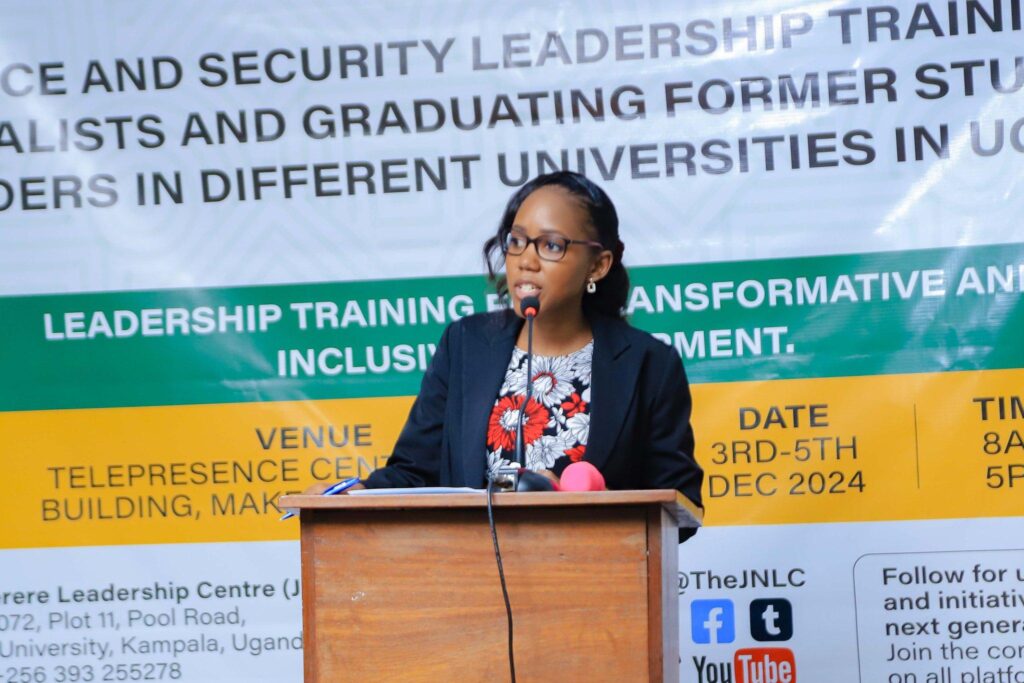
Ms. Angella Kasekende, giving her opening remarks at the training
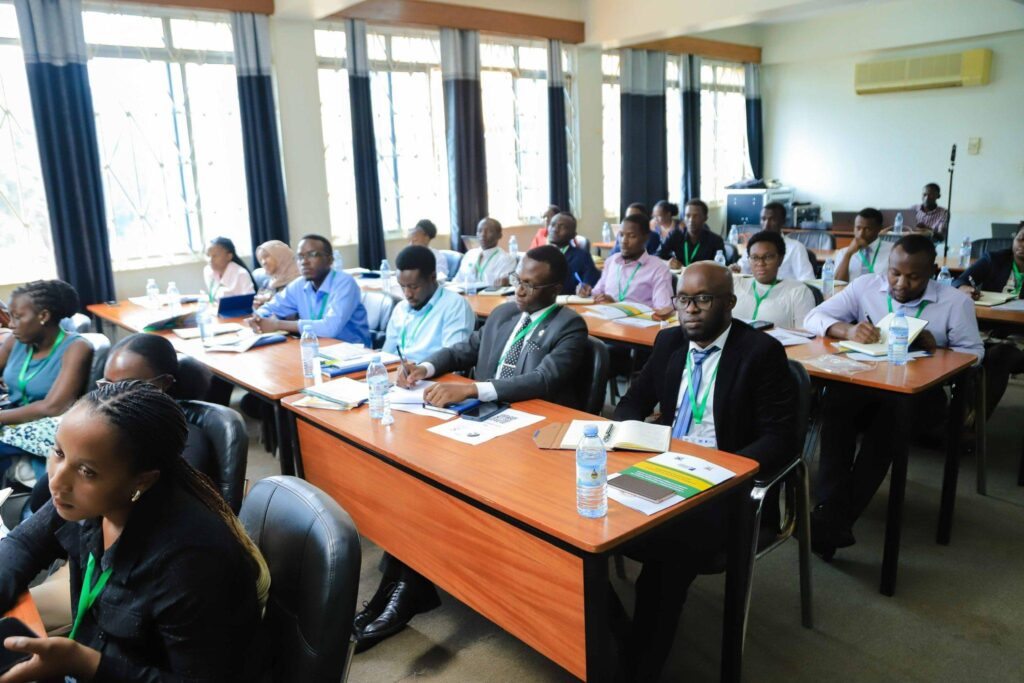
“We believe that young people can play a vital role in peace building, but many may not be able to access resources or get support to understand what it entails, gain the necessary skills and opportunities to be able to take part in peace and security initiatives, that is why we are pleased to provide such a platform,” Kasekende said.
According to Kasekende, the conflicts in the different parts of the world, such as the Ukraine-Russia war in Eastern Europe, the Israel-Hamas conflict in the Middle East, and the Sudanese war in East Africa, have led to a decline of security in different regions. She implored the students to take these trainings seriously to in order to understand and participate in the debates and practical measures designed to ensuring sustainable peace and development in Uganda and the region.
During the training, students were tipped on what it means to be involved in negotiations, understand the basics of conflict analysis, the links of emotional intelligence in peace and conflict resolution, how to evaluate peace building initiatives, the use of social media to advocate for peace and how to develop an action plan.
In his presentation, Philip Kasaija, an Associate Professor in the Department of Political Science and Public Administration at Makerere University, provided a deeper understanding of the situational analysis of peace and security issues in the region to help participants to grasp the complexities of current challenges.
“The Horn of Africa, is one of the conflict prone regions of the world. Therefore, youth who are part of the problem have to be part of the solution. Uganda’s problems can be addressed through dialogue. As youth, you have to stay away from conflicts because if conflicts happen, it will be the youth and women to suffer,” Prof Kasaija said.
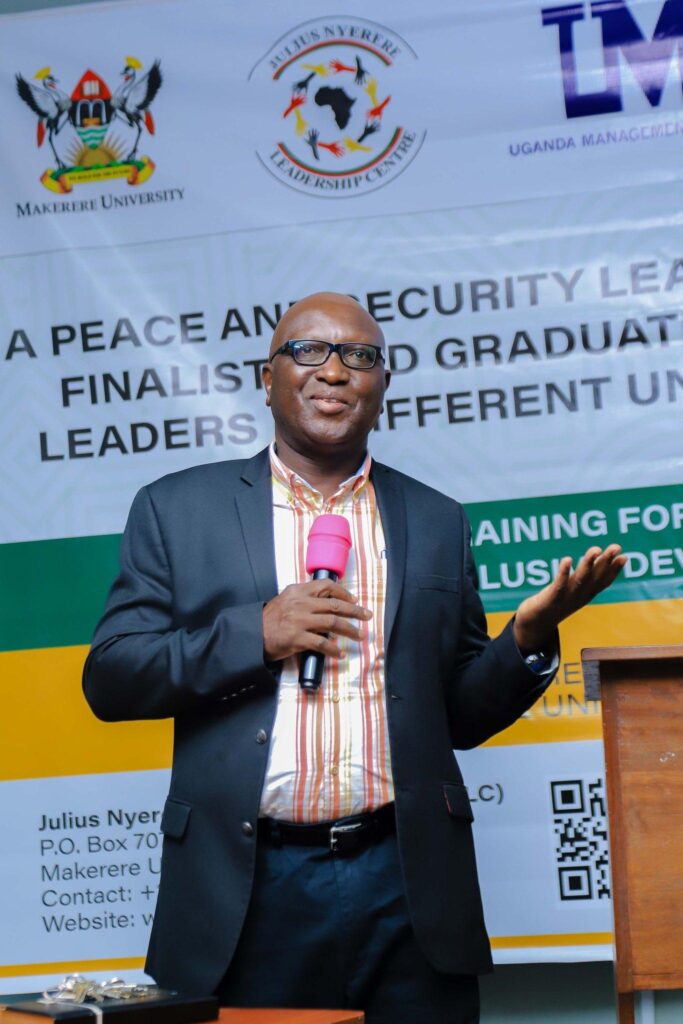
Prof. Philip Kasaija helped participants appreciate regional peace and conflict complexities.
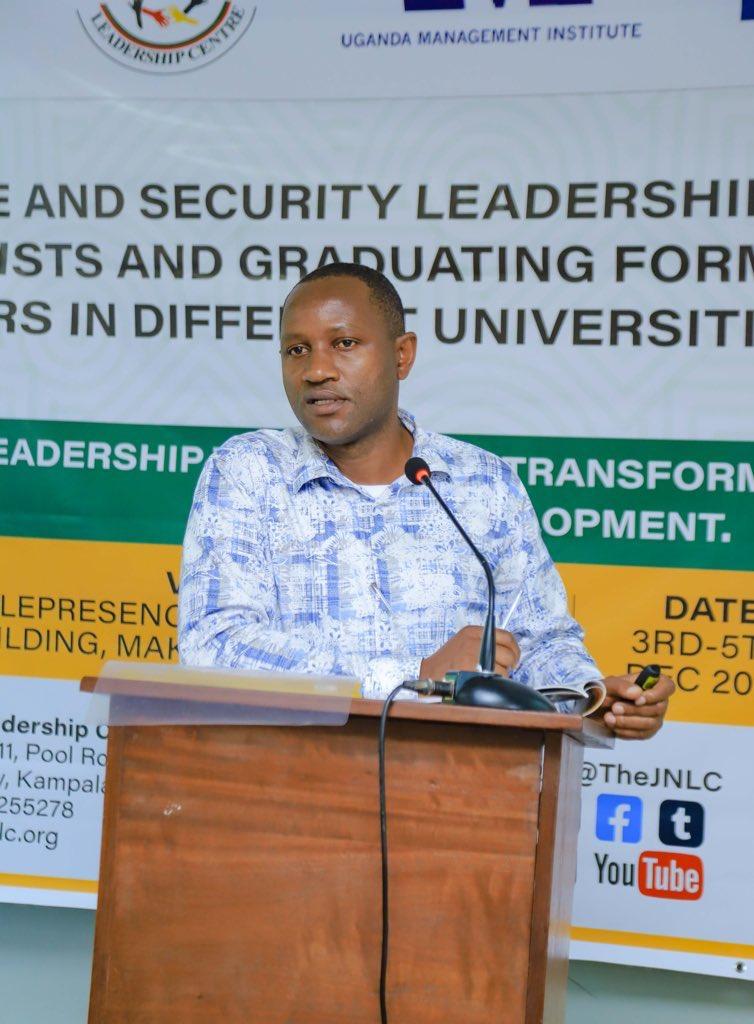
Dr. Edward Silvestre Kaweesi advised student leaders to avoid engaging in conflict.
During the training, Dr Edward Silvestre Kaweesi, from the Department of Political Science and Public Administration, cautioned the students leaders that they should never think of engaging in any conflict. He stressed that there is nothing constructive that comes with conflicts in a country.
“Don’t be deceived that you are going to be young for long, at all costs, one is supposed to avoid instances that drive people to conflicts. Violent conflicts come at a very high cost and can waste your youthful years,” Dr Kaweesi said.
Dr Kaweesi pointed out that in addition to consuming resources that could otherwise be used to cater for other essentials of life, conflicts can claim life.
“Civilisation has crumbled because of violence. Symbols of modernity like cities have been destroyed and population have been traumatized by violence and trust has been fractured. To avoid all that, a culture of peace needs to be cultivated among the youths,” Dr Kaweesi noted.
Dr. Gardner H. Rwakiseta, the Program Coordinator at JNLC, emphasized the importance of self-awareness and self-knowledge in resolving conflict and fostering sustainable peace. He noted that -emotional intelligence and mental wellness are vital for peace-building. “Do not hold on to your emotions, if crying will help you heal, cry even if you are a man,” he stated.
Dr. Solomon Winyi, a lecturer and coordinator of graduate programs in the Department of Political Science and Public Administration, had an engaging session that highlighted how digital platforms can drive peace efforts and advocacy.
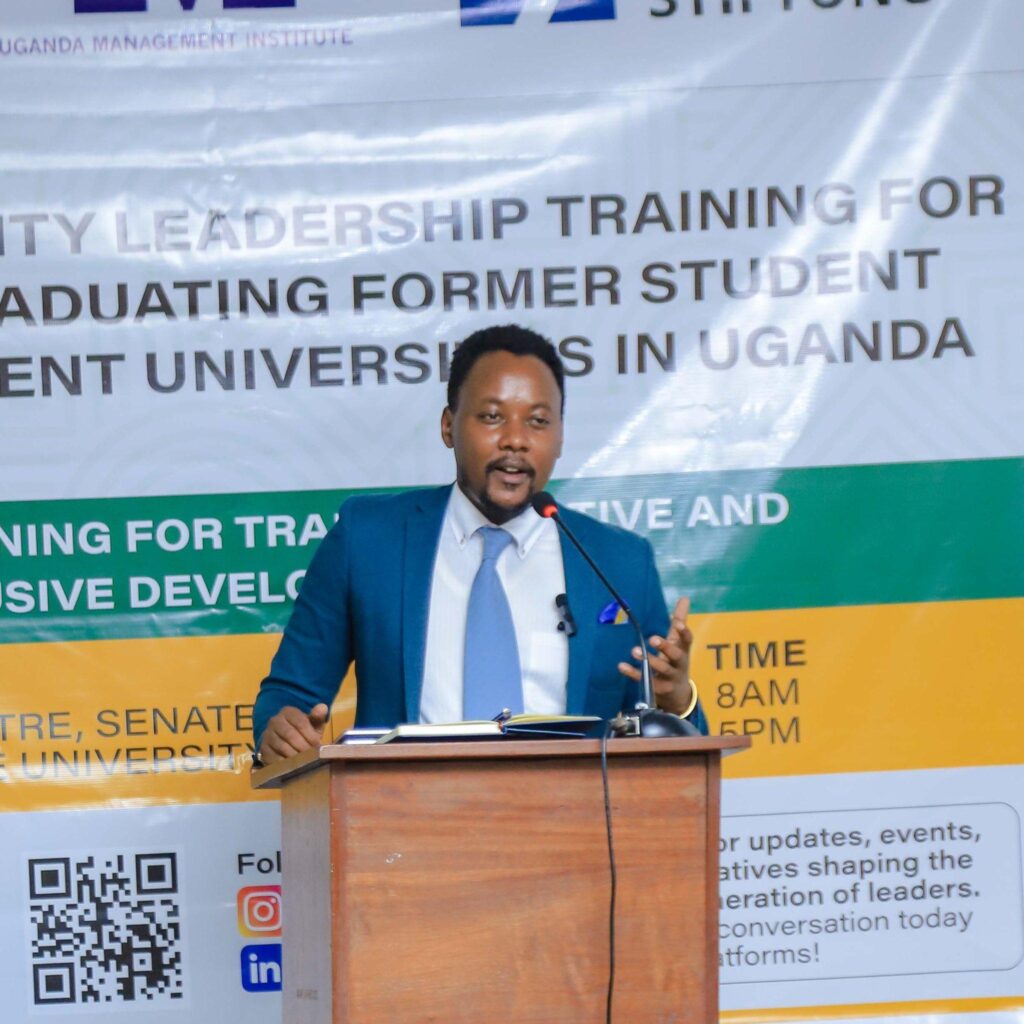
Dr. Gardner H. Rwakiseta tips students on emotional intelligence.
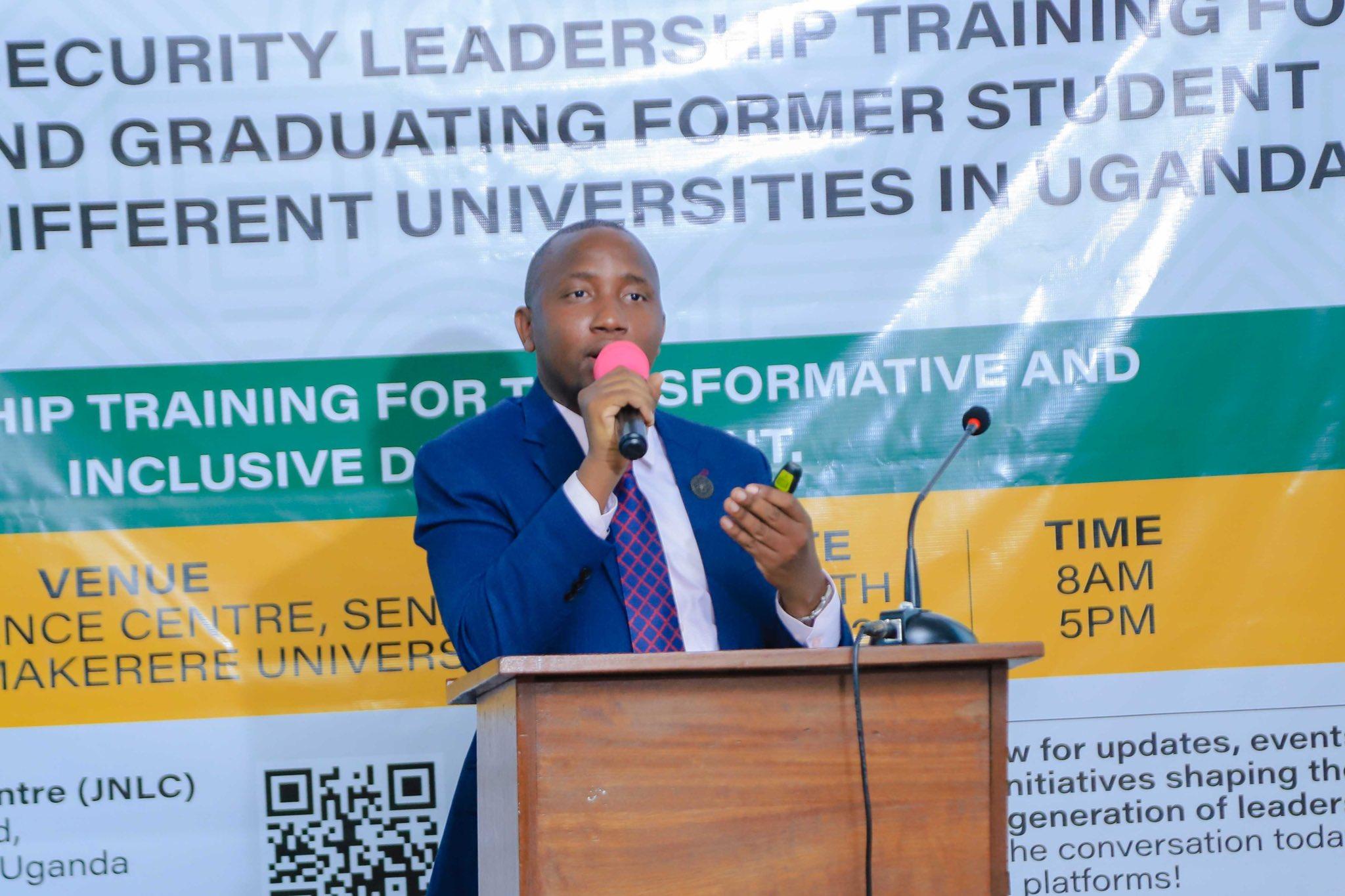
Dr. Solomon Winyi discusses the role of digital platforms in promoting peace advocacy.
“Always develop content, videos and social media posts that advocate for peace initiatives. As digital natives, navigate online spaces and counter misinformation and articulate your perspectives because you represent a dynamic force in shaping the narratives surrounding social media and peace advocacy,” he said.
Dr Winyi explained that -using visuals such as infographics and videos, enhances the reach of peace advocacy messages.
“Integrating statistical data and personal testimonies into posts strengthens the arguments, demonstrating the real-world impact of peace initiatives,” Dr Winyi said.
Speaking about financial literacy in conflict and peace building, Gloria Namata, a financial expert, pointed out that financial crisis ignites conflicts and therefore encouraged students to ensure that they leave the University with skills that will help them earn a living before they get the kind of jobs they desire. “Every time you make money, make sure you save 20%. The money you save is the payment to yourself. As you are saving, make sure you have a plan of investing and make an investment that is going to add value to you. Even if it is small or long term, invest and never despise humble beginnings,” Namata, guided.
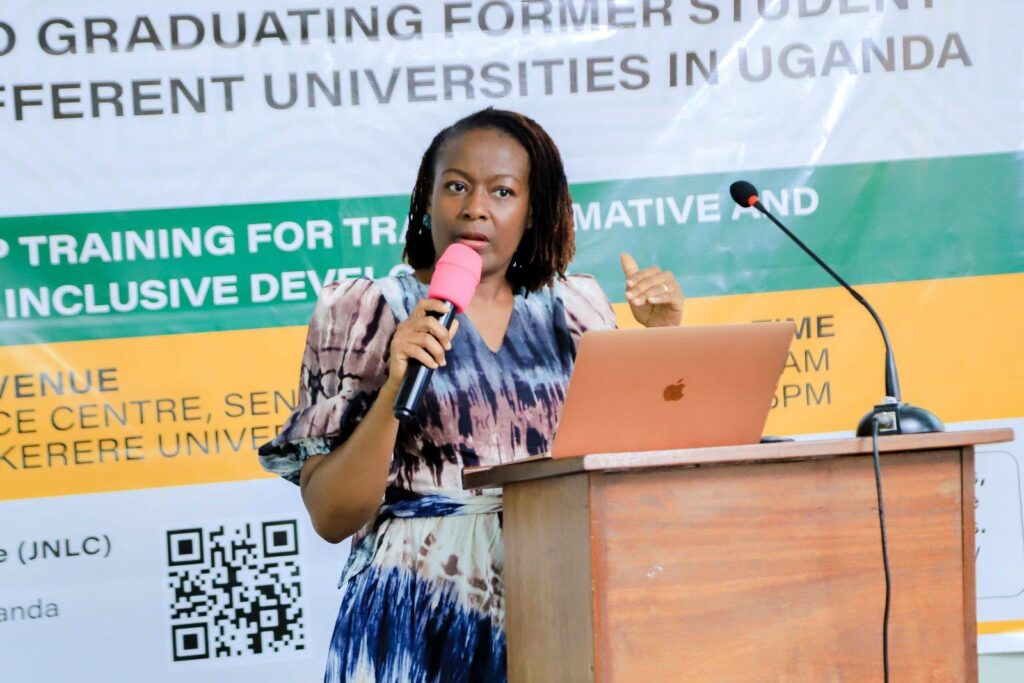
Gloria Namata advised student leaders to save 20% of all their income.

